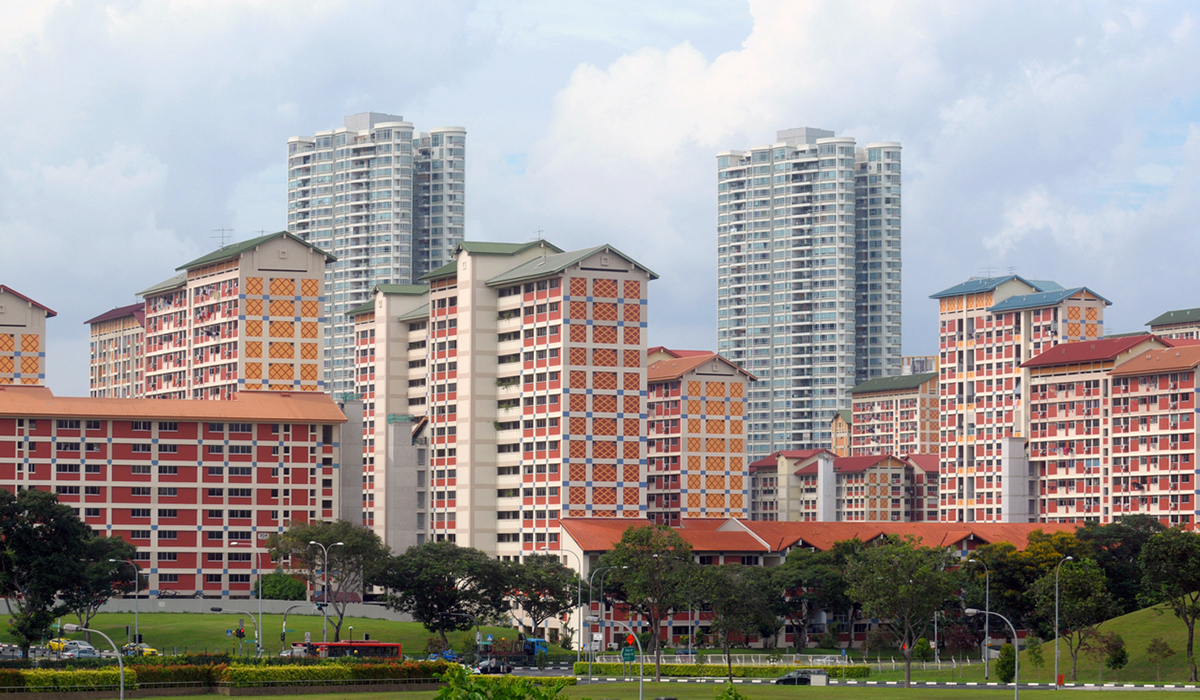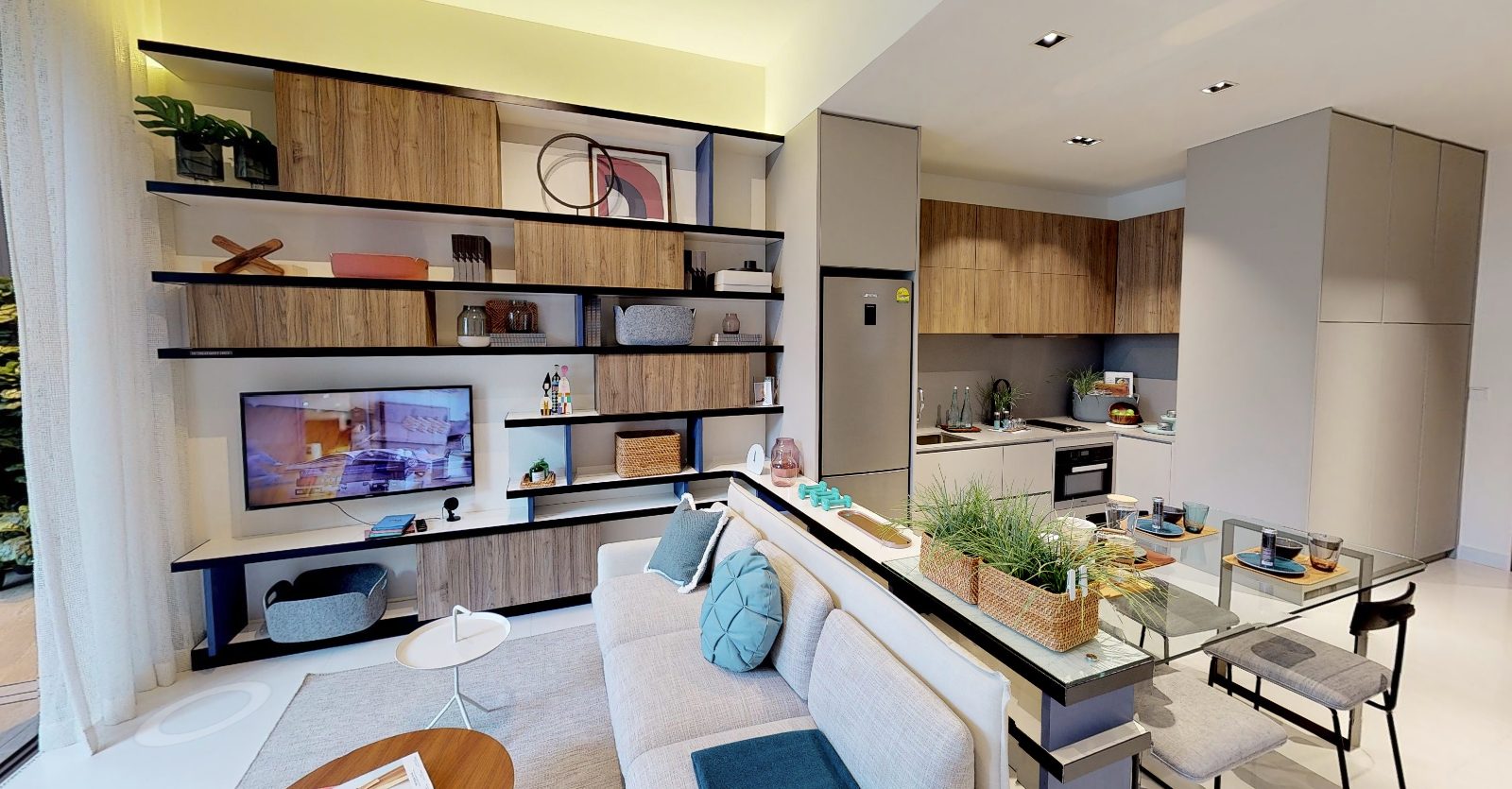It’s common knowledge that, when a HDB owner buys a condo unit, he or she has to fork out an Additional Buyer’s Stamp Duty (ABSD) for the purchase of a second property. Even if the HDB owner is an upgrader who intends to sell the flat and keep only one property, the ABSD must still be paid within 14 days of exercising the new home’s Option to Purchase (OTP).
The upgrader may obtain a refund of the paid ABSD called a ‘ABSD remission’—but only if the flat is sold within six months of the upgrader finalising the purchase (for completed properties) or the issue of the Temporary Occupation Permit (for uncompleted properties). The ABSD remission is only open to married couples with at least one Singaporean citizen buyer.
Now this imposes a significant barrier for HDB upgraders. Even if they intend to sell the flat and own only one property, they must have the means to pay a ABSD amounting to an additional 12% of the property’s market valuation or purchase price, whichever is higher.
The 12% ABSD that the upgrader must pay is in addition to the Buyer’s Stamp Duty (BSD) and a minimum 25% downpayment required, assuming no outstanding home loans at the time of purchase.
[Related article: Loan-to-value (LTV) limit: a Quick Guide for Property Buyers]
How the ABSD weighs on the HDB upgrader: an example
For a new launch condo priced at $1 million, the upgrader would need ready funds amounting to $394,600 within eight weeks of exercising the OTP, $194,000 of which must be paid in cash within 14 days of the OTP signing date. The BSD and ABSD amounts can be reimbursed from the buyer’s CPF account, but the fact remains that upgraders have to stump up nearly 40% of the purchase price in cash and CPF monies.
On top of that, HDB upgraders also risk losing the ABSD amount, if they fail to sell the flat within the six-month timeframe. Without the upfront ABSD, the upgrader’s initial cash outlay is reduced by at least half and he/she will be relieved of the punitive risk of monetary loss from failing to meet the deadline for disposing of the HDB flat.
Although the HDB entertains appeals from upgraders wanting to extend the six-month timeframe for ABSD remission, HDB will only approve a request for extension if it deems there are sufficient factors to support that the upgrader merits such an extension.

Why should the government abolish upfront ABSD?
For genuine HDB upgraders, there are a few compelling reasons why removing the requirement to pay ABSD upfront can prove to be a win-win, for both Singaporeans and the government’s own interest/objectives.
First and foremost, waiving the upfront ABSD would help upgraders make better property decisions.
Right now, HDB upgraders are buying the cheapest units of every condominium just because these are the only ones they can afford, due to the upfront ABSD requirement.
For instance, they might go for a two-bedroom unit at 600 square feet, smaller than the size of a three-room (two-bedroom) HDB flat, just because the ABSD has priced them out of a larger configuration.
Because they had to settle for the minimum, these upgraders could regret their purchase after they’ve moved into the home, realising that they need more space than they bought. While they can choose to upgrade again, they’ll face the woe of the upfront ABSD once more, plus incur a whole lot of fees and hassle.
Secondly, with the ABSD remission system, developers may also be driven to create more smaller units than larger ones of a particular unit type (e.g. smaller two-bedroom apartments). This is harmful for Singapore’s housing stock in the long run, as it accelerates the downsizing of homes and the skewing of our housing stock towards smaller homes.
This is related to our first point, but it merits emphasis. As upgraders can afford to pay less due to the upfront ABSD, they can only afford smaller sized condos. Developers will try to match that demand by reducing average unit sizes, accelerating the trend of shrinking homes in Singapore.
Already, new launch condos are regularly serving up units that smaller than their HDB counterparts. For instance, two-bedroom units at Treasure at Tampines range from 53 to 62 square metres (sq m)—smaller than standard three-room (two-bedroom) HDB flats that measure an average of 65 sq m.
Such smaller condo units often come with one bathroom (instead of two) and a downsized kitchen, which explains why an increasing number of condos are incorporating communal kitchens at their clubhouses as a facility for residents.
In any case, Singapore might be the rare few places in the world where an upgrade in property means a downgrade in space, and the upfront ABSD merely fosters this trend.

Thirdly, upfront ABSD creates unnecessary cash flow issues for the upgrader. It is an needless penalty.
We’re not economists here at 99.co, but we feel that any tax that isn’t an actual tax, but is merely an instrument used to hold a citizen hostage, has no reason to exist.
Especially in the time of economic uncertainty, we should not simply take money out of the system, where no one benefits.
Let us explain: The upfront ABSD is a lose-lose measure that doesn’t even benefit the government, who receives the funds but cannot put it to full use for nation building because it might have to return them back to the buyers. Without information upon the payment of ABSD on which buyer intends to hold onto their existing property and which is a genuine upgrader intending to sell, the government also does not have a clear picture of how much it has to pay back.
Nothing about the upfront ABSD is truly constructive to any party whatsoever.
A legally-binding undertaking is enough to hold upgraders to their word, and would allow them to make forward-looking decisions to improve their lives without distorting the accurate cost of a property, which is what the upfront ABSD does.
An alternative to upfront ABSD for upgraders?
Property developers are aware that the upfront payment of ABSD constitutes an unnecessary expense and risk that puts off upgraders and impacts demand for private homes. The President of the Real Estate Developers’ Association of Singapore (REDAS) recently called on the government to reconsider levying the ABSD for first-time upgraders. Propnex CEO Ismail Gafoor also raised the issue in a Business Times article.
Instead of levying the ABSD upfront, “genuine HDB upgraders” can instead “give an undertaking to the HDB that their HDB home will be disposed of within six months”, Gafoor told the Business Times.
In legal terms, an undertaking is an agreement or promise to do or provide something, or to refrain from doing or providing something, which is meant to be binding on the party giving the undertaking.
Because an undertaking is a legally binding promise, the HDB owner who signs the undertaking will have to bear legal consequences should the flat fail to be sold after the condo purchase.
The scope of legal consequence can be defined, such as having to pay 110% of the ABSD, or ABSD plus interest starting from 14 days after the exercising the OTP, as possible punitive measures for upgraders who decide to retain their existing home after all.
Here’s 99.co’s suggestion: the undertaking option can also be made available exclusively to married couples with two or more children. These happen to be upgraders with a greater need more space in their homes, but at the same time do not have the luxury of liquidity to park upfront ABSD monies with the government.

Making the undertaking option exclusive to married couples with two or more kids will also encourage couples to have more children. Imagine, just one more kid and you can upgrade without paying another $150,000 to $200,000. Forget the Baby Bonus; that’d be one hell of an incentive to make more babies.
The point is: the ABSD remission system is far from being the ideal system to achieve the government’s objectives of keeping property prices in check. Not only does such a ‘pay first, refund later’ system have net negative effects on the property market and housing stock, there are also more viable measures on the table.
Should the government make changes to the ABSD remission system? Share your views with us in the comments below.
If you liked this article, check out How to Hunt for Fire Sale Properties in a Recession (other than auctions) and Revealed: 17 new launch condos + 26 webinars to feature in the Singapore Property Show 2020
Looking for a property? Find your dream home on Singapore’s most intelligent property portal 99.co!
The post Upgrading to a condo: Why the ‘ABSD remission’ system should be abolished appeared first on 99.co.

